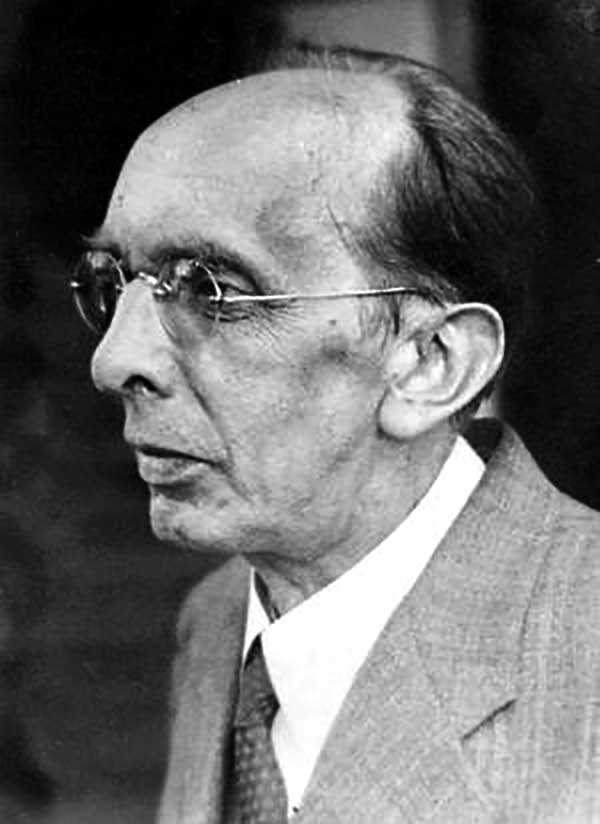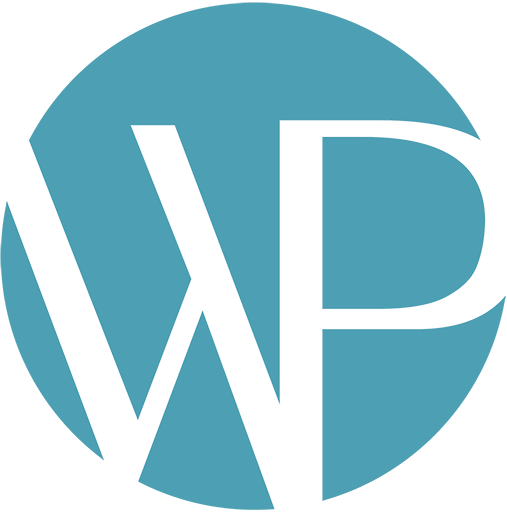English
How to use this website
Until our website is fully translated, you will temporarily find information about Wilhelm Petersen and the Wilhelm Petersen Society in English on this page.
In order to facilitate your search on the German pages as well, here is the translation of the menu items:
Biographie, catalog raisonné, Archive (Texts/Press, Events, Photos), Media (Audio, Video, Print), Contact, Membership
Wilhelm Petersen
Wilhelm Petersen is one of the composers of the 20th century who pursued his own path away from the avant-garde. Born in Athens in 1890 and raised in Darmstadt, he studied German language and literature, philosophy, composition and conducting in Munich.
He created numerous remarkable works and taught at the Hochschule für Musik in Mannheim and the Akademie für Tonkunst in Darmstadt. The winner of the Georg Büchner Prize died in Darmstadt in 1957.
Who is Wilhelm Petersen?

W ilhelm Petersen (1890 – 1957) is one of the composers of the 20th century who pursued his own path apart from the avant-garde. Although he accompanied the revolutionary awakening of Expressionism with insight into the necessity of newly developed forms of expression, he found a tonally centred and formally clarified tonal language around 1925 after an experimental phase on the edge of tonality. He was interested in the possibilities for development still dormant in the traditional material, whereby the ethical demands of his composing were oriented towards the great symphonic tradition of the 19th century. Petersen was less interested in reviving a Romantic subjectivism than in essentialising the tonal language by reflecting on what he called „original musical qualities“.
While his first three opus-numbered works were based on the symphonic tradition, especially that of Bruckner, Wilhelm Petersen attempted to come to terms with contemporary musical language during a brief phase of intensive creative activity from 1919 to 1924. Of these strongly dissonant works with a strongly polyphonic texture, which admittedly never left tonality, Petersen left only his 2nd Symphony op. 4, the String Quartet op. 8 and a work for violin and piano op. 11 in their original form, while other works of this phase were either reworked or completely removed from the catalogue of works.
After successful premieres of his first two symphonies in the early twenties, Petersen’s name had a good reputation in Germany. His compositional skill and the truthfulness of his message were never doubted; admittedly, he was found off the beaten track. Thus, among the few highlights of his public activity were the premieres of his Great Mass op. 27 under Karl Böhm (1930) and his opera Der Goldne Topf (1941).
The Wilhelm-Petersen-Gesellschaft e.V. in Darmstadt, founded in 1972, promotes the composer’s work through concerts, publications, the printing of sheet music and recordings.
Wolfgang Mechsner
from 1891
1890
From 1891
with the family in Darmstadt
1908 until 1911
1911
First compositions.
Voluntary conductor under Furtwängler in Lübeck.
1913 – 1914
1918
Music writing in Munich.
Premiere of the 1st Symphony in C minor op. 3 at the Tonkünstlerfest of the Allgemeiner Deutscher Musikverein in Nuremberg.
1921
1923
Moves to Darmstadt. Premiere of the 2nd Symphony in E flat major op. 4 at the Tonkünstlerfest of the ADMV in Kassel.
Georg Büchner Prize of the Hessian State.
1926
from 1927
Lecturer at the Städtische Akademie für Tonkunst in Darmstadt.
Premiere of the Great Mass op. 27 under Karl Böhm in Darmstadt.
1930
1934
Premiere of the 3rd Symphony in C-sharp minor op. 30 in Darmstadt.
Professorship at the Hochschule für Musik in Mannheim.
from 1935
1941
Premiere of the opera Der Goldne Topf in Darmstadt.
Premiere of the 4th Symphony in D major op. 33 in Ludwigshafen.
Moves to Heidelberg.
1943
1951
Takes up a teaching position at the reopened Musikhochschule in Mannheim.
Return to Darmstadt. Gives up teaching for reasons of illness.
1953
1957
Dies in Darmstadt.
Zeittafel
1890
Born in Athens.
Ab 1891
with the family in Darmstadt.
1908 bis 1911
Studies in Munich (German language and literature, philosophy; composition with Friedrich Klose and Rudolf Louis, conducting with Felix Mottl). Close contact with the circle around Stefan George and Karl Wolfskehl. Own poetry.
1911
First compositions.
1913 – 1914
Voluntary conductor under Furtwängler in Lübeck.
1918
Music writing in Munich.
1921
Premiere of the 1st Symphony in C minor op. 3 at the Tonkünstlerfest of the Allgemeiner Deutscher Musikverein in Nuremberg.
1923
Moves to Darmstadt. Premiere of the 2nd Symphony in E flat major op. 4 at the Tonkünstlerfest of the ADMV in Kassel.
1926
Georg Büchner Prize of the Hessian State.
ab 1927
Lecturer at the Städtische Akademie für Tonkunst in Darmstadt.
1930
Premiere of the Great Mass op. 27 under Karl Böhm in Darmstadt
1934
Premiere of the 3rd Symphony in C-sharp minor op. 30 in Darmstadt.
ab 1935
Professorship at the Hochschule für Musik in Mannheim.
1941
Premiere of the opera Der Goldne Topf in Darmstadt.
Premiere of the 4th Symphony in D major op. 33 in Ludwigshafen.
1943
Moves to Heidelberg.
1951
Takes up a teaching position at the reopened Musikhochschule in Mannheim.
1953
Return to Darmstadt. Gives up teaching for reasons of illness.
1957
Dies in Darmstadt.
Welcome to the Wilhelm Petersen Society
The Wilhelm-Petersen-Gesellschaft e.V. was founded in 1972 by friends and students of the composer Wilhelm Petersen (1890-1957) with the aim of giving public recognition to his musical work. With concerts, publications, the printing of works and the production of recordings, the society continues to work in this spirit.
The activities of the Wilhelm Petersen Society set their own accents in the concert life of Darmstadt and the region. This has resulted in outstanding concert events, also documented on recordings, such as the performances of the Great Mass Op. 27 – 1965 in Darmstadt by the Darmstädter Musikverein under General Music Director Hans Drewanz and in 1990 in Mainz Cathedral under Cathedral Music Director Mathias Breitschaft.
Since the founding of the Wilhelm Petersen Society, works by the composer have been regularly presented to the public in annual concerts, including several world premieres. In 1990, for example, the Confession Op. posth. 11, a choral work from Petersen’s radical compositional phase, was performed for the first time by the Mainzer Figuralchor under Stefan Weiler in an impressive concert. In 1998, Oden von Klopstock Op. 13 by Hans Christoph Begemann was premiered, in 2002 also in the orchestral version at the Staatstheater Darmstadt. The „Songs from Shakepeare Dramas“ for low voice Op. 46 were first heard in the orchestral version in 2022
A world premiere and reference recording is the CD of Petersen’s Symphony No. 3 in C-sharp minor Opus 30 with the Hessian Radio Symphony Orchestra conducted by Constantin Trinks, released in 2023.
Brochures and books – in addition to concerts and recordings on audio media – could only be realised through the idealistic and financial support of the Society. With a work on Wilhelm Petersen published in 1980, Ludwig Nöll presented a first overview of his life and work.
In 1996, a fundamental work on the composer by Wolfgang Mechsner was published in Frankfurt am Main: Wilhelm Petersen – Leben und Werk, Biographie mit thematischem Werkverzeichnis.
In addition to the carefully researched biography, this publication contains a catalogue of works with musical examples of all movement beginnings as well as extensive documentation of texts penned by the composer, plus correspondence with Bruno Walter.
After clear clarification of the publishing rights, the complete works of Wilhelm Petersen were brought together in several steps in 2015 in the tradition-rich Robert Lienau-Musikverlag (part of the publishing group Schott music GmbH & Co. KG, Mainz).
Our society was able to establish a central place of remembrance for the composer in conjunction with the city of Darmstadt by renaming the large concert hall of the Akademie für Tonkunst Darmstadt the Wilhelm-Petersen-Saal and installing a portrait (half-relief by sculptor Detlef Kraft).
Please inform yourself about our activities on this website and help us to realise our „musical“ association goal. We would be pleased to welcome you as a new member, but would also appreciate any individual donation.
The governing body of the Wilhelm-Petersen-Gesellschaft e. V.
Anschrift
Wilhelm-Petersen-Gesellschaft e. V.
Birkenweg 15 G
64295 Darmstadt
Germany
Kontakt
Telefon: +49(0)6151-1301782 (AB)
Fax: +49(0)6151-1301798
Email: info@wilhelm-petersen-gesellschaft.de
Kontoverbindung
Wilhelm-Petersen-Gesellschaft e.V.
DE26 5085 0150 0000 6188 29
Sparkasse Darmstadt
